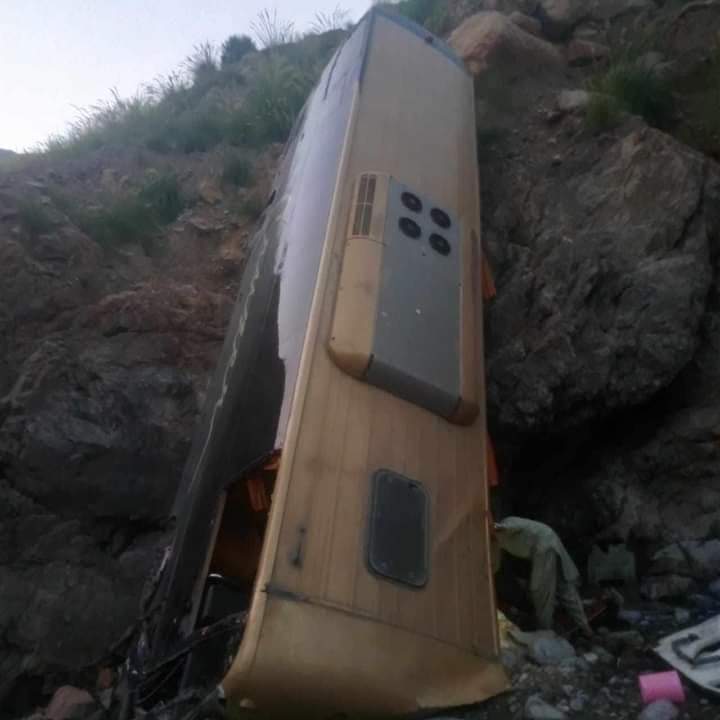QUETTA: At least four people were killed and 14 others injured after a passenger bus fell into a ravine in Pakistan’s southwestern Balochistan province on Saturday, officials said.
The bus was traveling to Quetta from Islamabad, when the driver reportedly fell asleep and the bus fell into a gorge near Dana Sar area in Balochistan’s Sherani district, according to Sana Mahjabeen Umrani, a senior district administration official.
The deceased included the bus driver, while his assistant was among the critically wounded persons.
“Eight critically injured persons, including women, have been referred to Quetta for better medical treatment,” Umrani told Arab News.

Bystanders stand next to the wreckage of a bus after an accident in in Dana Sar, some 80 kilometers away from Zhob city, Balochistan on September 14, 2024. (Photo courtesy: Levis Force Sherani district)
Dana Sar is a mountainous area that lies along the Koh-e-Sulaiman mountain range, with a curvy and narrow N-50 highway passing through it.
In July 2022, 20 passengers were killed and more than a dozen others injured after a Quetta-bound passenger bus fell into a ravine in the area notorious for fatal road accidents.
Last month, a bus carrying pilgrims from Iran to Pakistan’s Karachi fell into a ditch near the Buzi Top area on the Makran Coastal Highway in Balochistan, killing 12 people and injuring 35 others.
Fatal accidents are common in Pakistan, where traffic rules are rarely followed and roads, particularly in many rural and mountainous areas, are in poor condition.
Such incidents are particularly common in Balochistan where single carriage roads connect various cities and even some highways lack modern safety features.

















